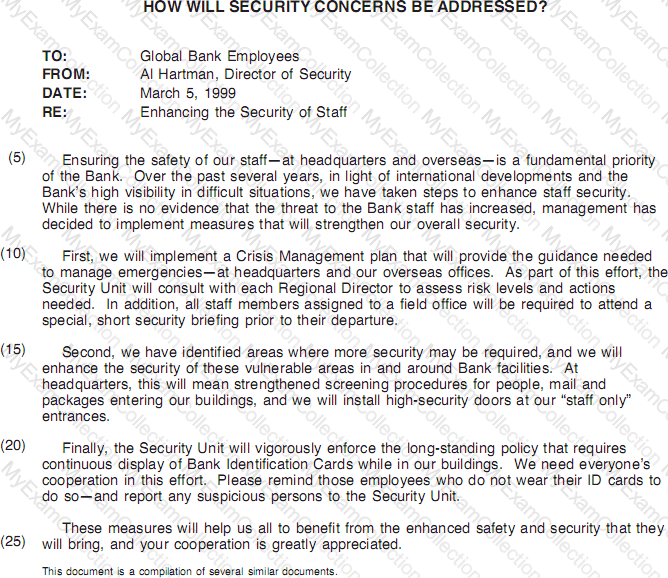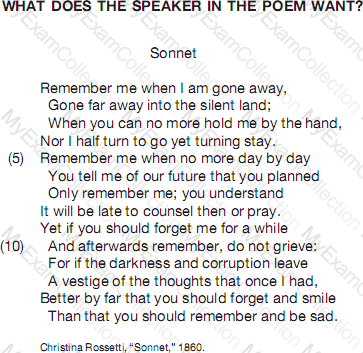-- Exhibit–
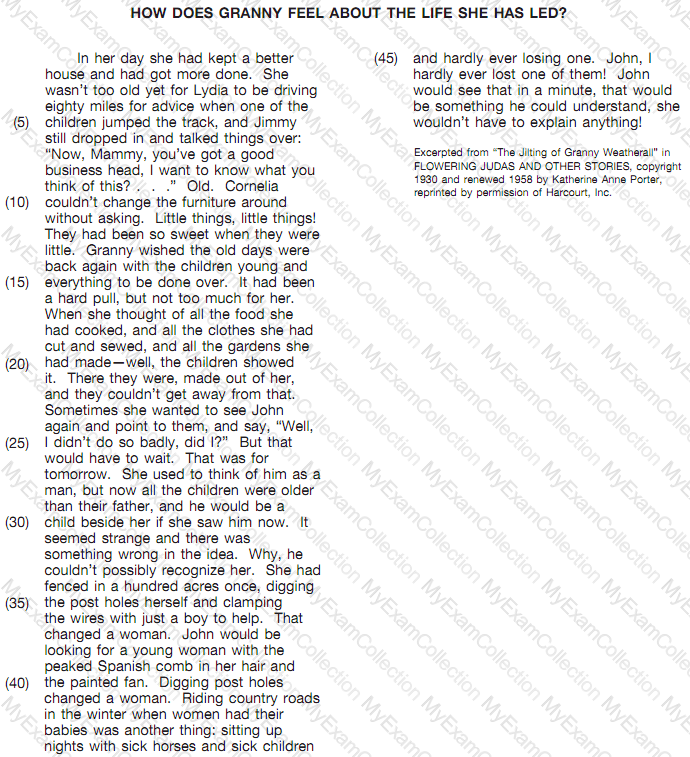
-- Exhibit --
Granny says that "the children showed it" (line 20). What does she think the children show?
-- Exhibit–
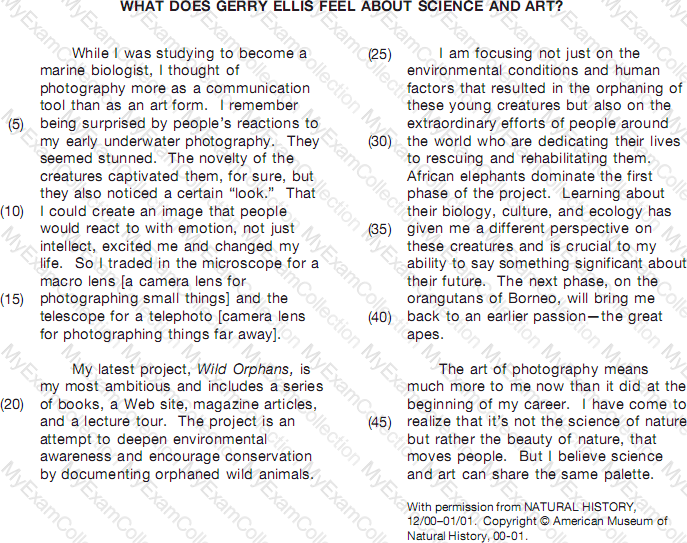
-- Exhibit --
Gerry Ellis says that the next phase of Wild Orphans will be “on the orangutans of Borneo†(lines 38–39). What does Gerry Ellis also say in this excerpt that leads the reader to understand that he has worked with great apes before?
-- Exhibit–
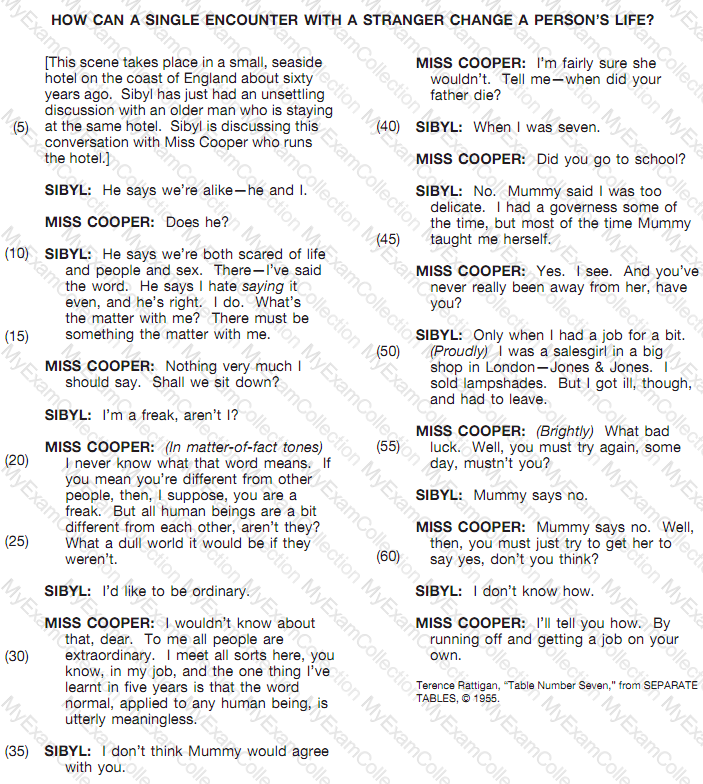
-- Exhibit–
How does Miss Cooper react to Sibyl’s protest that she is a freak?
Exhibit:
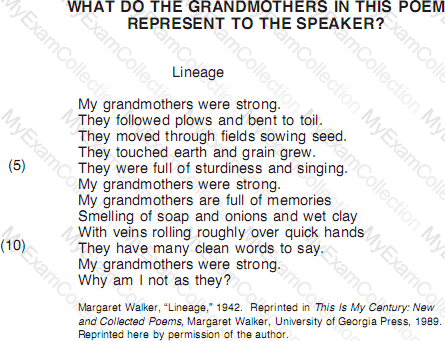
What does the description that the grandmothers “touched earth and grain grew†(line 4) emphasize about them?
Exhibit:
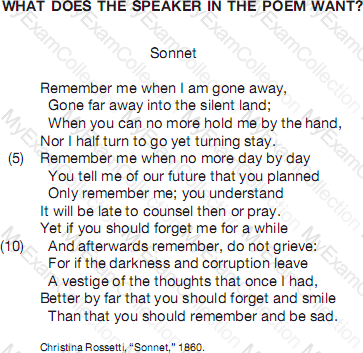
How does the speaker seem to feel about the prospect of her own death?
-- Exhibit–
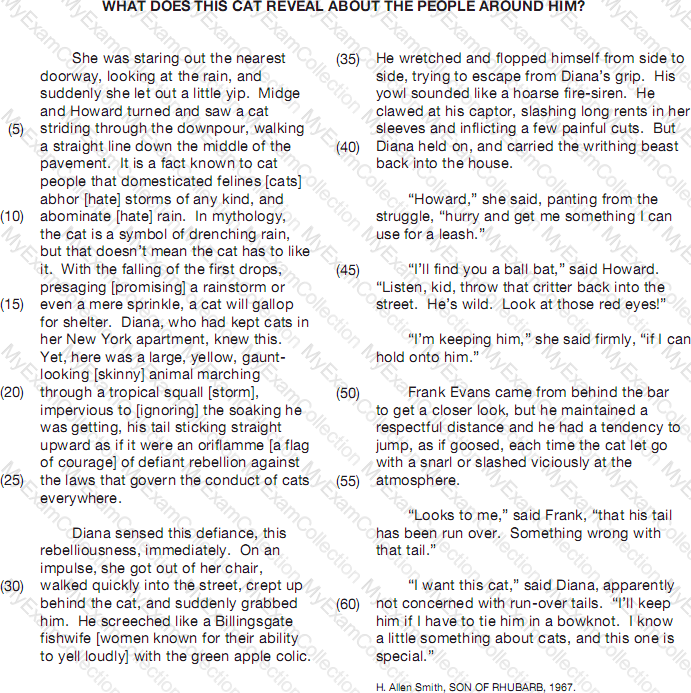
-- Exhibit --
How does the cat react to being snatched by Diana?
-- Exhibit–
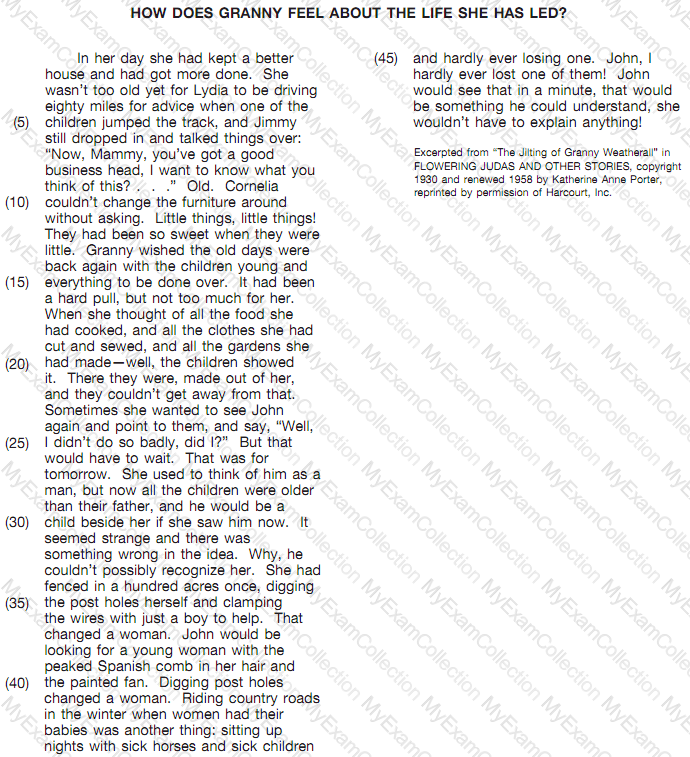
-- Exhibit --
Granny’s name is "Weatherall"Based on the information about her in the excerpt, why is this a good name for her?
-- Exhibit–
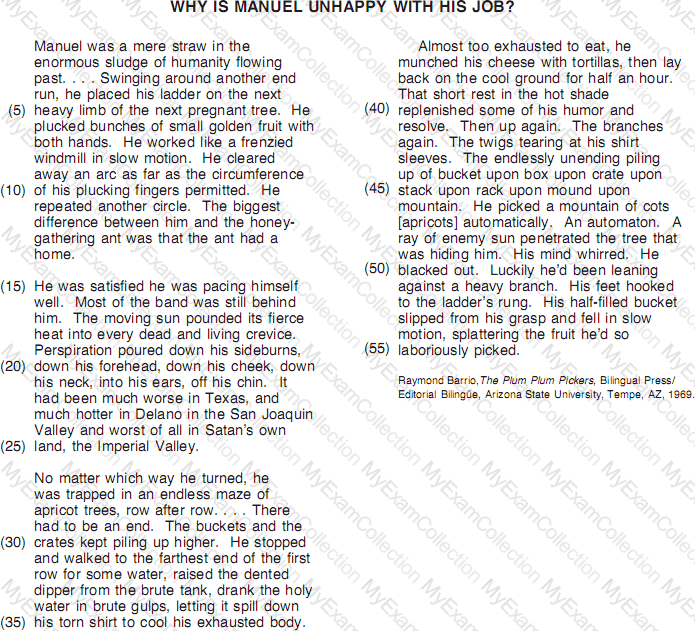
-- Exhibit–
Why does the author use the phrase “Satan’s own land†(lines 24–25)?
-- Exhibit–
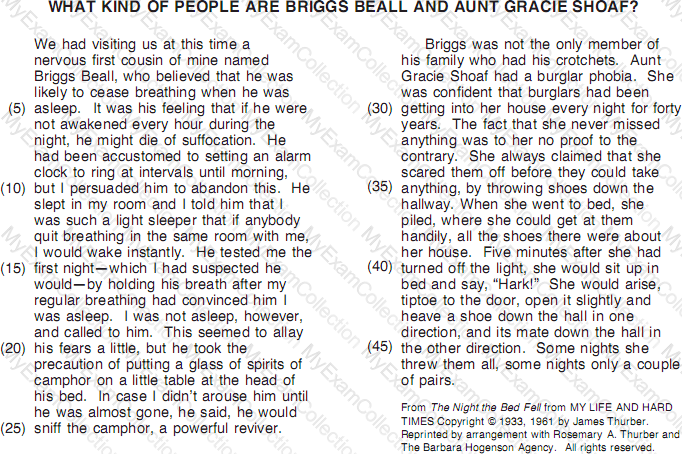
-- Exhibit --
Which one of the following emotions do BOTH Briggs and Aunt Gracie exhibit in this excerpt?
-- Exhibit–
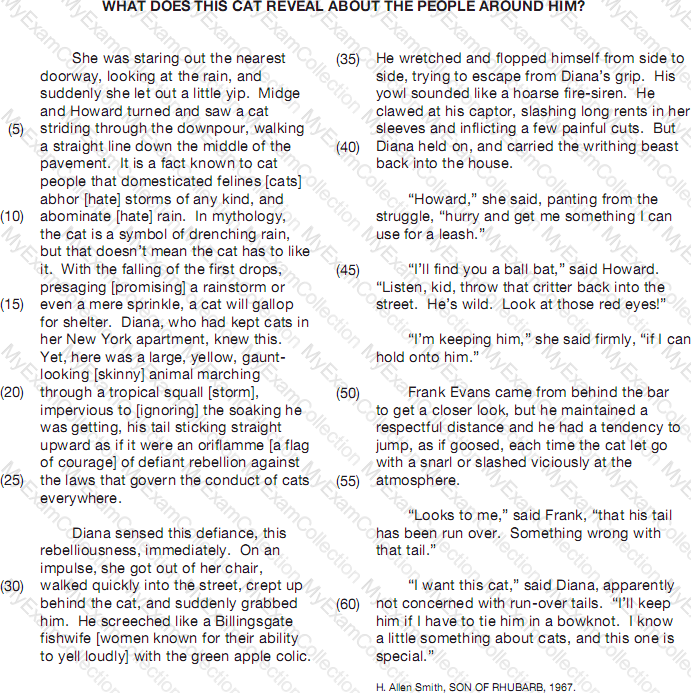
-- Exhibit --
When Diana asks for a leash, Howard says he’ll get her a baseball bat. What is Howard’s opinion of what Diana should do with the cat she catches?
-- Exhibit–
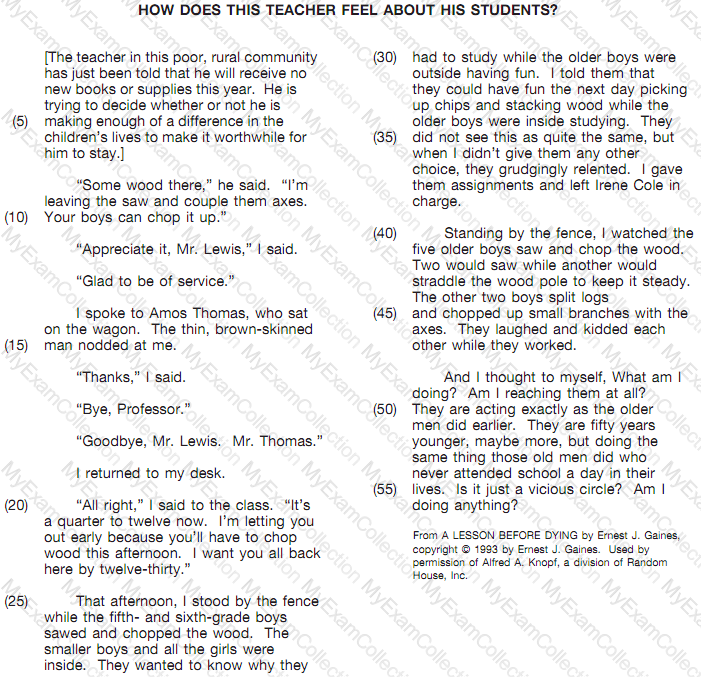
-- Exhibit --
What is suggested about the teacher in line 49: "Am I reaching them at all?"
-- Exhibit–
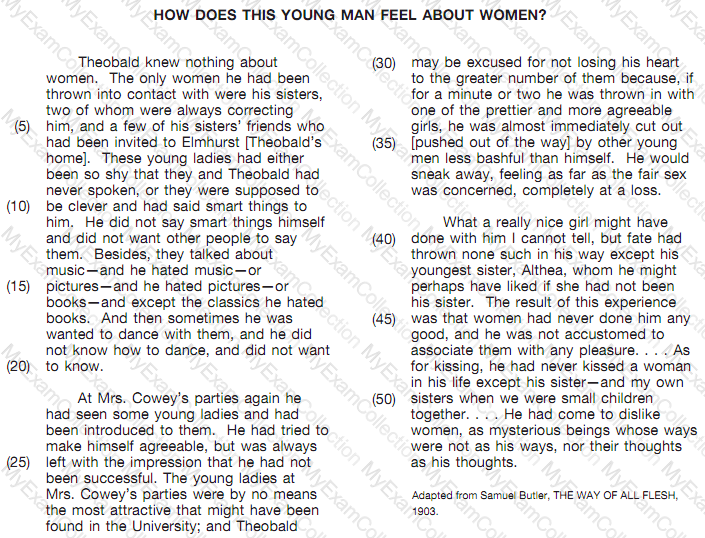
-- Exhibit --
At Mrs. Cowey’s parties, Theobald "was almost immediately cut out by other young men less bashful than himself" (lines 34–36) if he ever got near a pretty girl. What does this fact imply about his relationship with the other young men?
-- Exhibit–
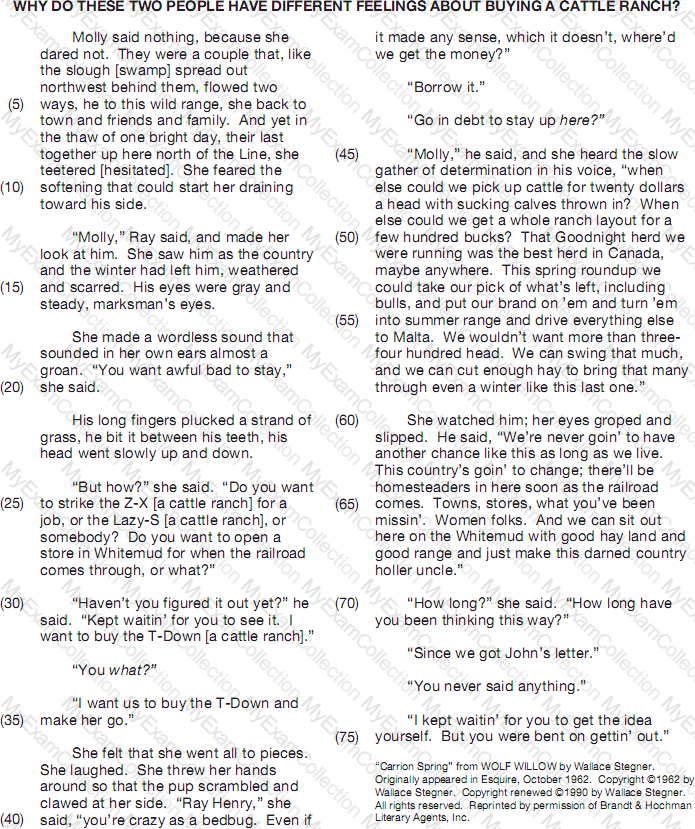
-- Exhibit --
Which of the following pairs of words best describes Ray’s character?
-- Exhibit–
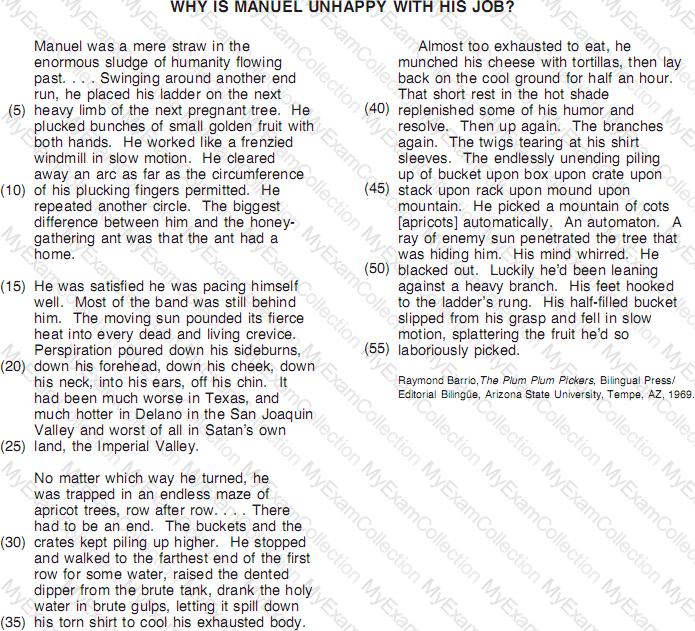
-- Exhibit --
What does the author imply by the phrase “A ray of enemy sun†(lines 47–48)?
-- Exhibit–
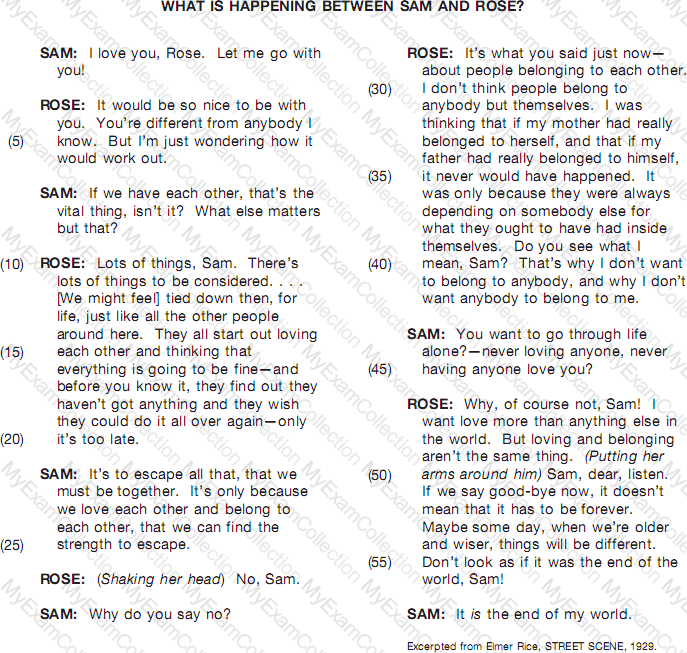
-- Exhibit --
On the basis of the excerpt, which statement would Rose believe most about marriage?
-- Exhibit–
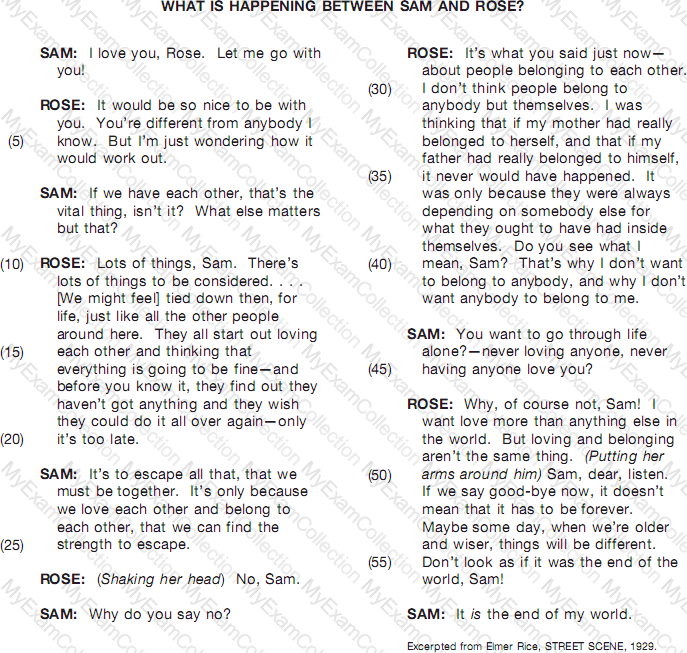
-- Exhibit --
Which character trait does Rose’s decision about her future indicate?
-- Exhibit–
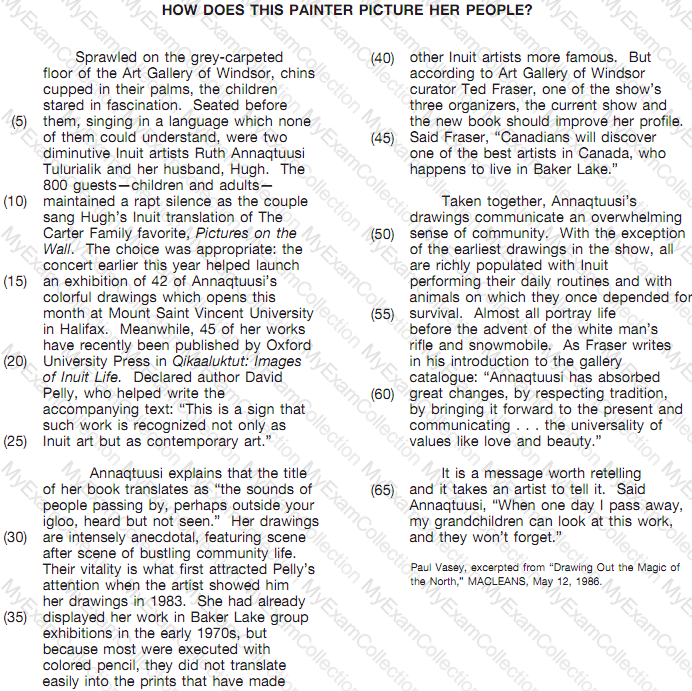
-- Exhibit --
When Annaqtuusi says that she hopes her grandchildren "won’t forget" (line 68), what does she hope they will remember?
-- Exhibit–
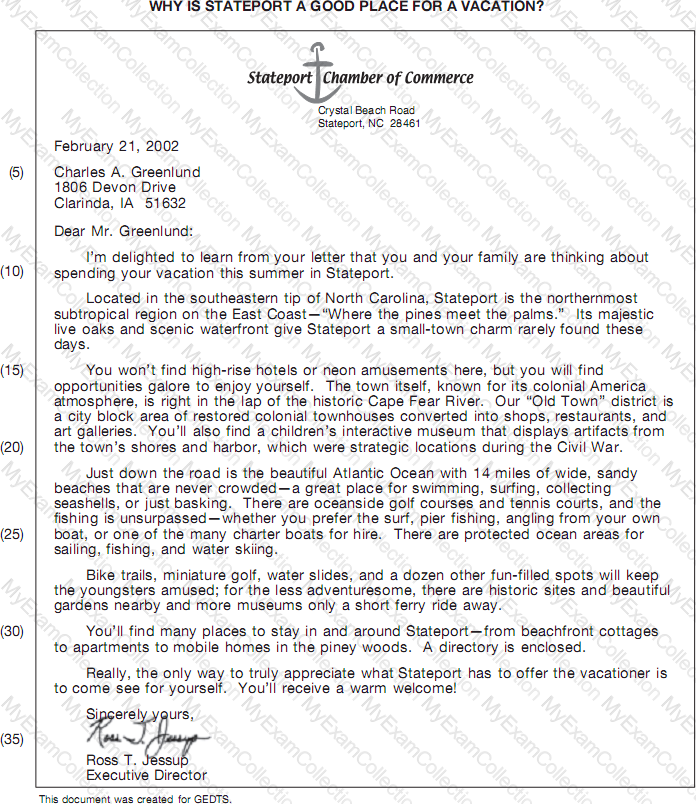
-- Exhibit --
Which aspect of Stateport would most likely attract a historian who is doing research?
-- Exhibit–
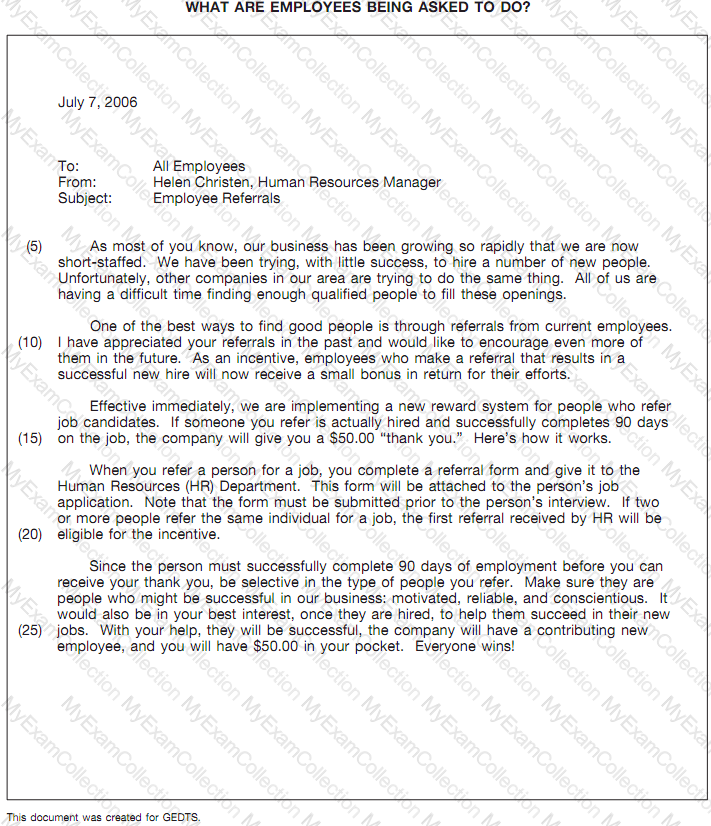
-- Exhibit --
This company is having trouble finding "enough qualified people" (line 8). What is implied by this statement?
-- Exhibit–
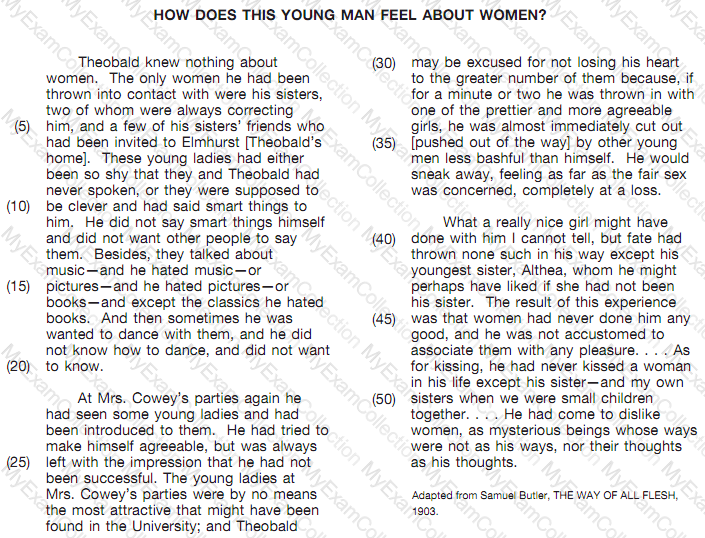
-- Exhibit --
Theobald "did not say smart things himself and did not want other people to say them" (lines 11–13). What does this reveal about Theobald?
-- Exhibit–
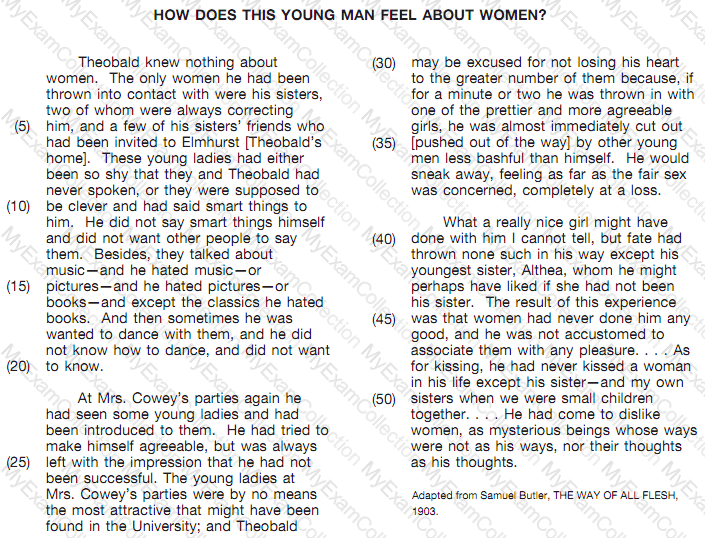
-- Exhibit --
Why does the narrator include details of Theobald’s dislike of music and pictures and books?
-- Exhibit–
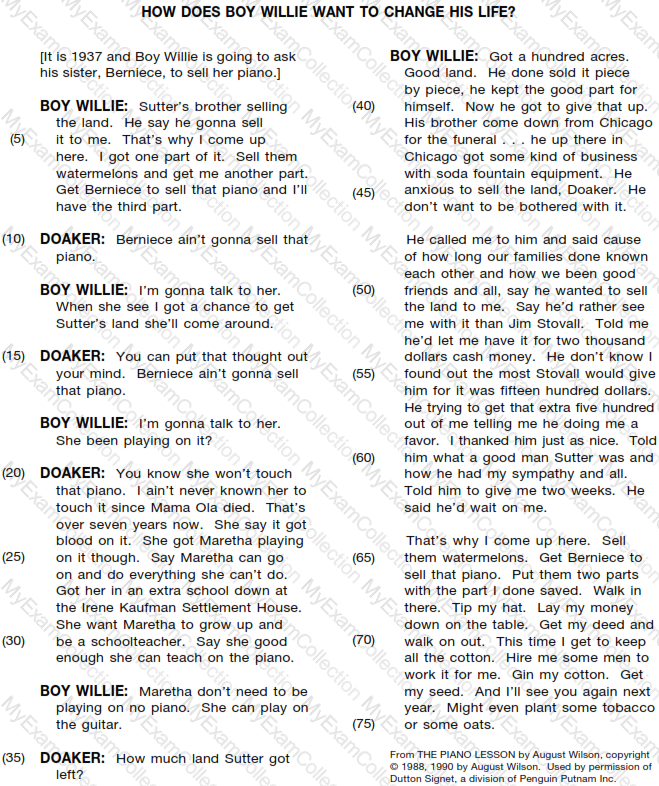
-- Exhibit --
Later in the play, it is revealed that the piano has carvings on it of Boy Willie’s and Berniece’s enslaved ancestors. Why might this affect Willie’s plans?
-- Exhibit–
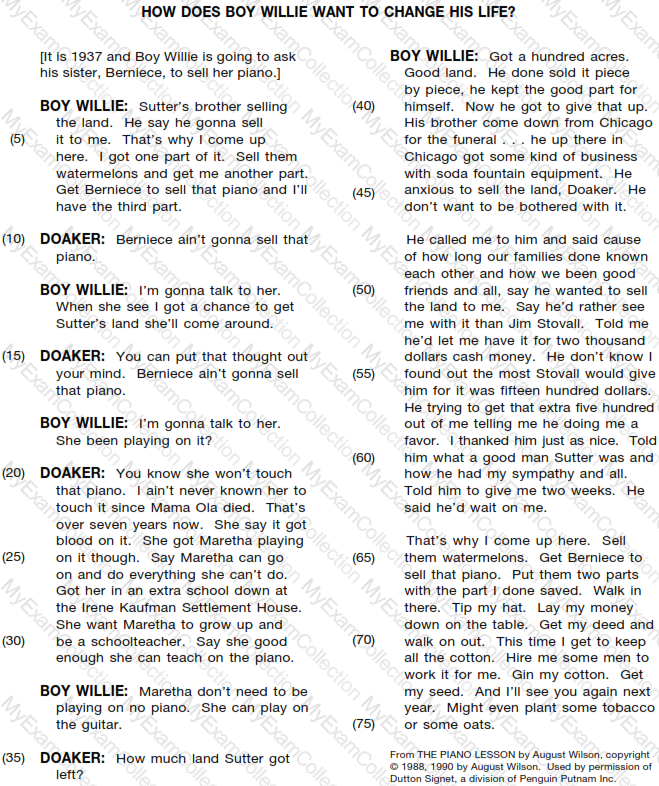
-- Exhibit --
Which one of Berniece’s character traits is revealed when doaker says twice that "Berniece ain’t gonna sell that piano" (lines 10-11 and 16-17).
-- Exhibit–
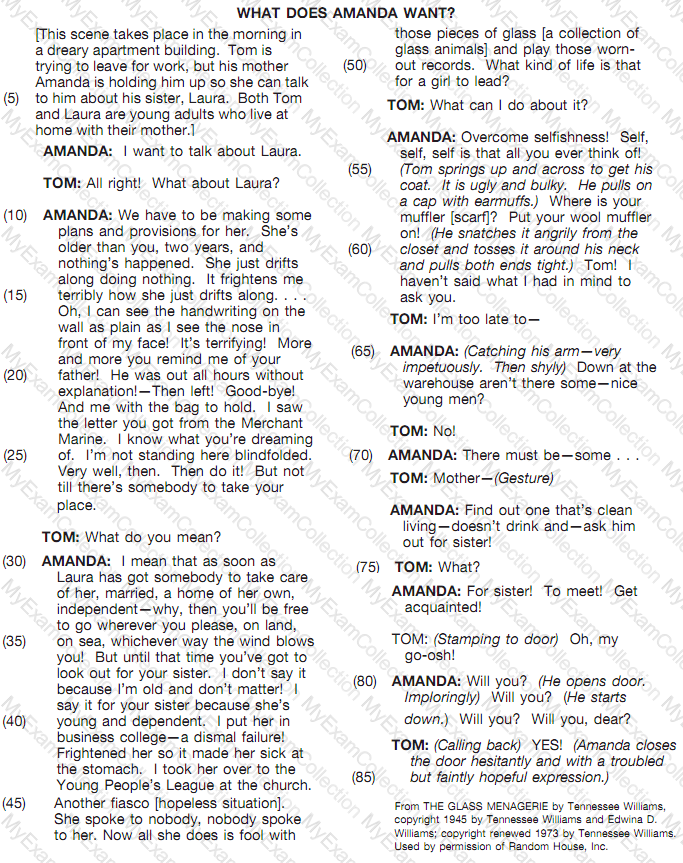
-- Exhibit --
When Amanda says, "I can see the handwriting on the wall . . . It’s terrifying!" (lines 16–18), what does she mean?
-- Exhibit–
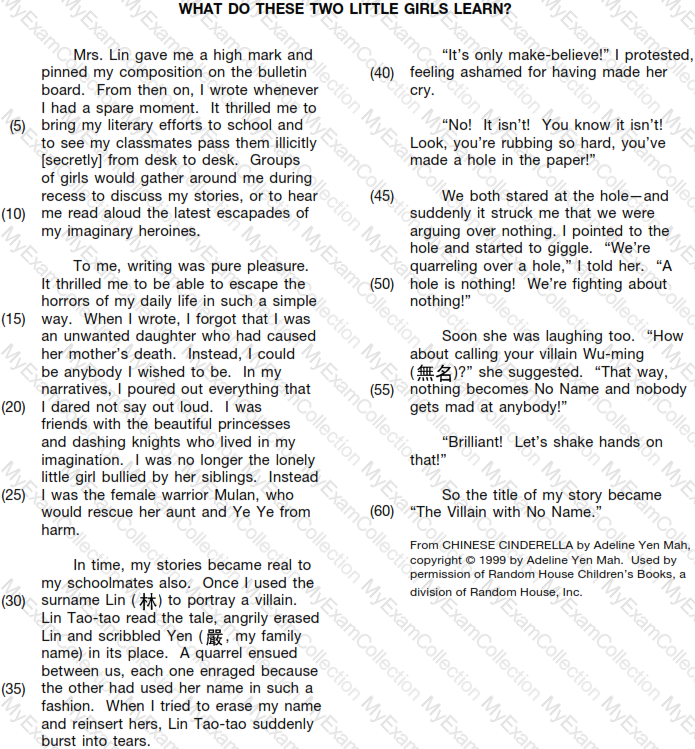
-- Exhibit --
Suppose that as an adult, the narrator had a niece who didn’t like school. Based on the way the narrator handles her family problem in this excerpt, what advice would the narrator probably give to her niece about handling the problem at school?
-- Exhibit–
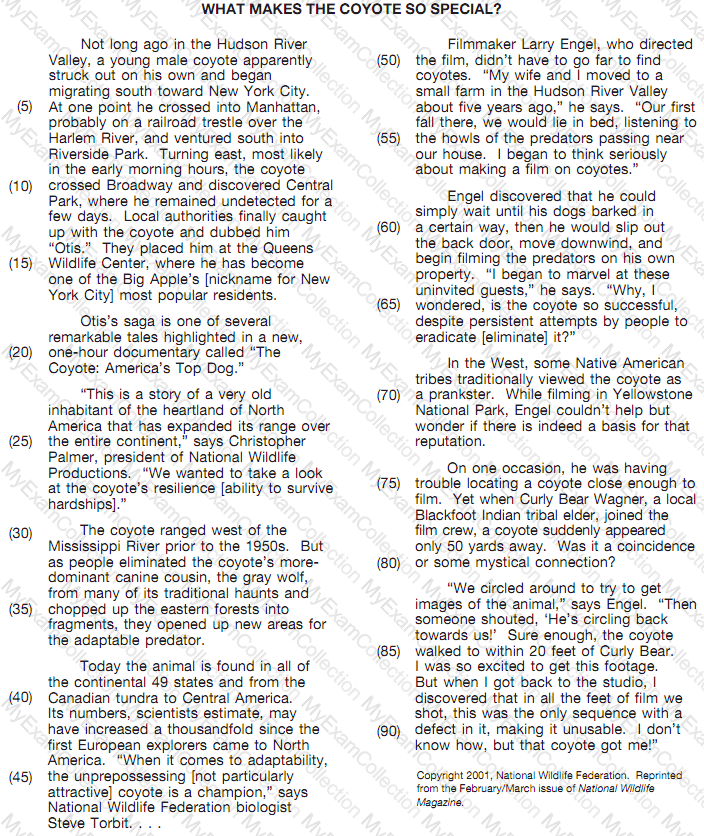
-- Exhibit --
Which statement expresses the main idea of this article?
-- Exhibit–
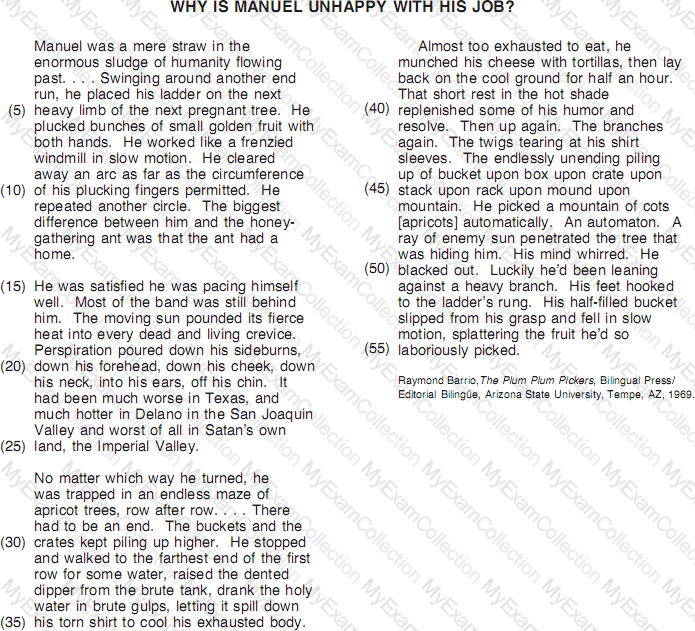
-- Exhibit --
From this excerpt, what can we assume is the author’s purpose in writing this story?
-- Exhibit–
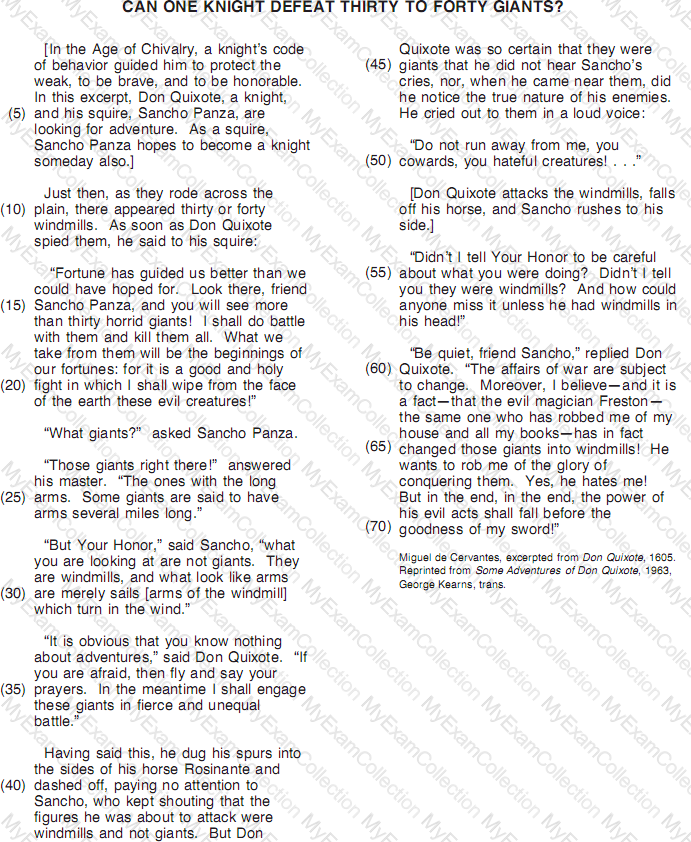
-- Exhibit --
If Sancho Panza were working in a contemporary office setting, how might he respond to a boss who made a mistake?
-- Exhibit–
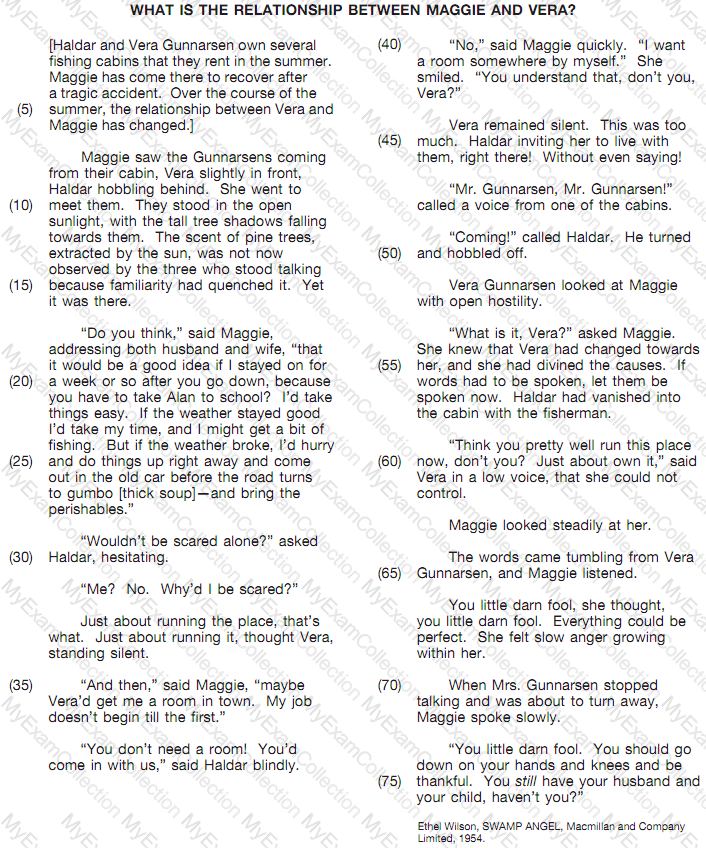
-- Exhibit --
Why does the narrator use the word "blindly" (line 39) to describe Haldar’s offer to Maggie of a room in their home?
-- Exhibit–
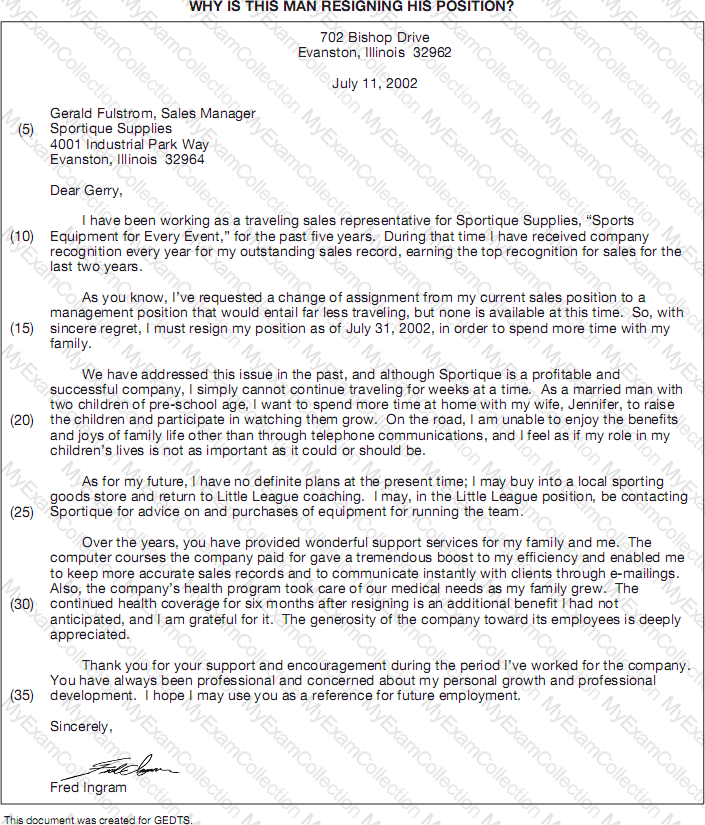
-- Exhibit --
According to Fred Ingram’s letter, which benefit is he likely to need in the near future?
Exhibit:
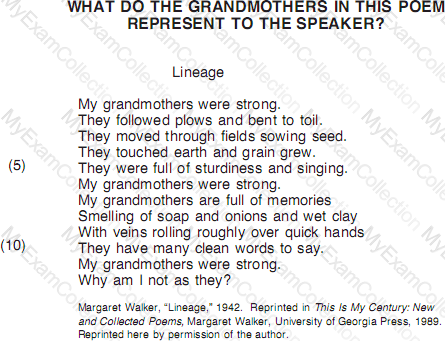
If the grandmothers described in the poem suddenly faced a grave economic problem, which one of the following would they be most likely to do?
